 Asset Publisher
Asset Publisher
Sale conditions
Sale conditions of wood are specified by the regulation of Director – General of the Sate Forests.
Within the framework of the individual sale , the foresters try to meet the fast growing demand, because more and more people use wood in order to heat their houses. Contrary to general opinion, these are not only village people, even though they prevail among recipients. The growth of firewood demand is the result of occurrence of new housing estates built in the suburbs of large agglomerations, where houses are usually equipped in fireplace heating installations.
Firewood is not only the most ecological heat source, but also is much more attractive in respect of relation of price and electric efficiency, rather than cola, oil, gas or electric power.
In recent years, the Sate Forests increased the sale of firewood of one third – up to over 4 million cubic meters annually. Firewood is not only the most ecological heat source, but also is much more attractive in respect of relation of price and electric efficiency, rather than cola, oil, gas or electric power. Some of customers choose already prepared and cut into pieces wood, the others very willingly obtain it by themselves after arranging all details and fulfilling particular safety conditions, and after paying the fee; that concerns mainly so called "thinnings". Such a raw material is very cheap, that is why many people from village areas profit from such possibility.
 Asset Publisher
Asset Publisher
"Tropical Forestry" z wizytą w Polsce
"Tropical Forestry" z wizytą w Polsce
Studenci Leśnictwa Tropikalnego poznawali arkana polskiego leśnictwa.
Przedstawiciele Nadleśnictwa Wymiarki w ramach trwającej już od kilku lat współpracy z Uniwersytetem Technicznym w Dreźnie prezentowali studentom kierunku "Tropical Forestry" (Leśnictwo Tropikalne) model polskiego leśnictwa. Spotkanie było okazją wskazania szeregu działań prowadzonych na rzecz wielofunkcyjnej i racjonalnej gospodarki leśnej.

fot. W. Babula
Podobnie jak w latach wcześniejszych na terenie nadleśnictwa gościła ponad dwudziestoosobowa grupa studentów reprezentująca różne i często odległe kraje. Wśród zwiedzających polskie lasy znaleźli się studenci mieszkający w czternastu krajach, położonych na czterech kontynentach. Z Afryki przybyli studenci z Kamerunu, Sierra Leone oraz z Togo. Azję reprezentowali obywatele Wietnamu, Pakistanu, Indii, Indonezji i Birmy. Z Ameryki Północnej dotarli studenci z Kanady, Nikaragui i Panamy natomiast z Ameryki Południowej przyjechali słuchacze z Peru i Brazylii. Opiekunami grupy byli m.in. prof. Lukas Gissen oraz dr Eckhard Auch.
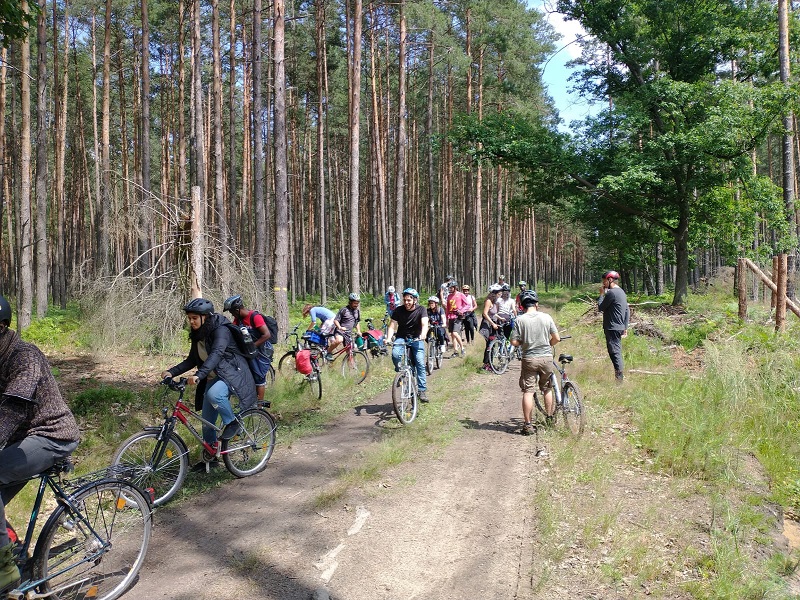
fot. W. Babula
Przybyłej delegacji wskazano powierzchnie leśne gdzie wykonywane były prace z zakresu ochrony, hodowli oraz użytkowania lasu. Całość spotkania odbyła się w warunkach terenowych na świeżym powietrzu, przy zachowaniu reżimu sanitarnego. Była to jednocześnie forma aktywnego spędzania czasu, bowiem nasi goście do Polski przyjechali rowerami. Pogoda dopisała, a przyszła grupa „międzynarodowych leśników” wróciła do Niemiec w wyśmienitych nastrojach.
Autor. J.Karwański



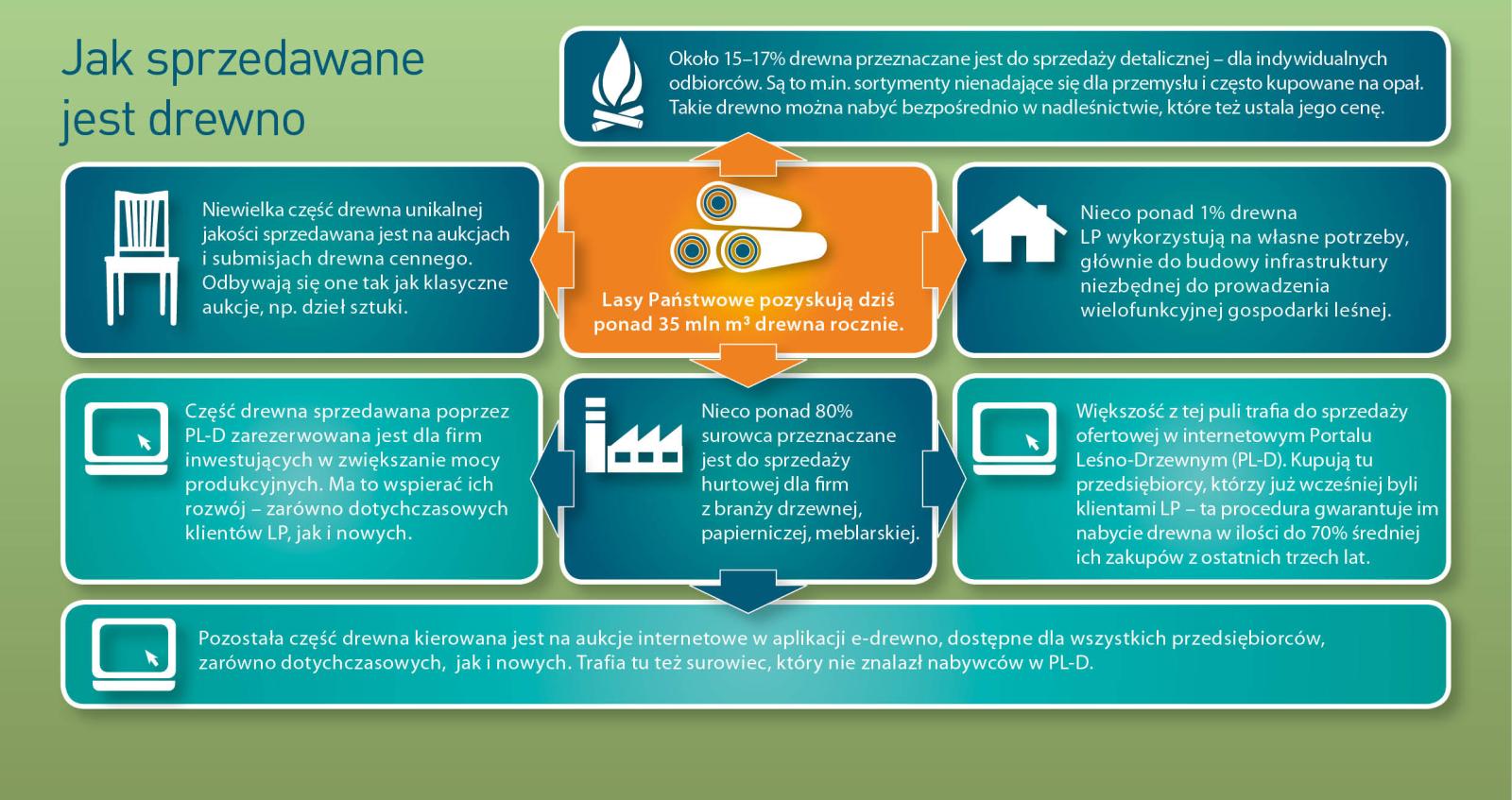
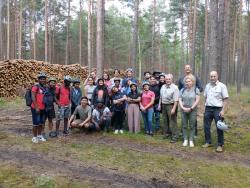
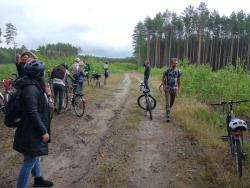 fot. W.Babula
fot. W.Babula
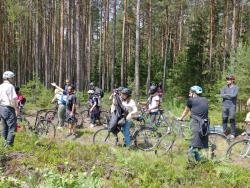 fot. W.Babula
fot. W.Babula



